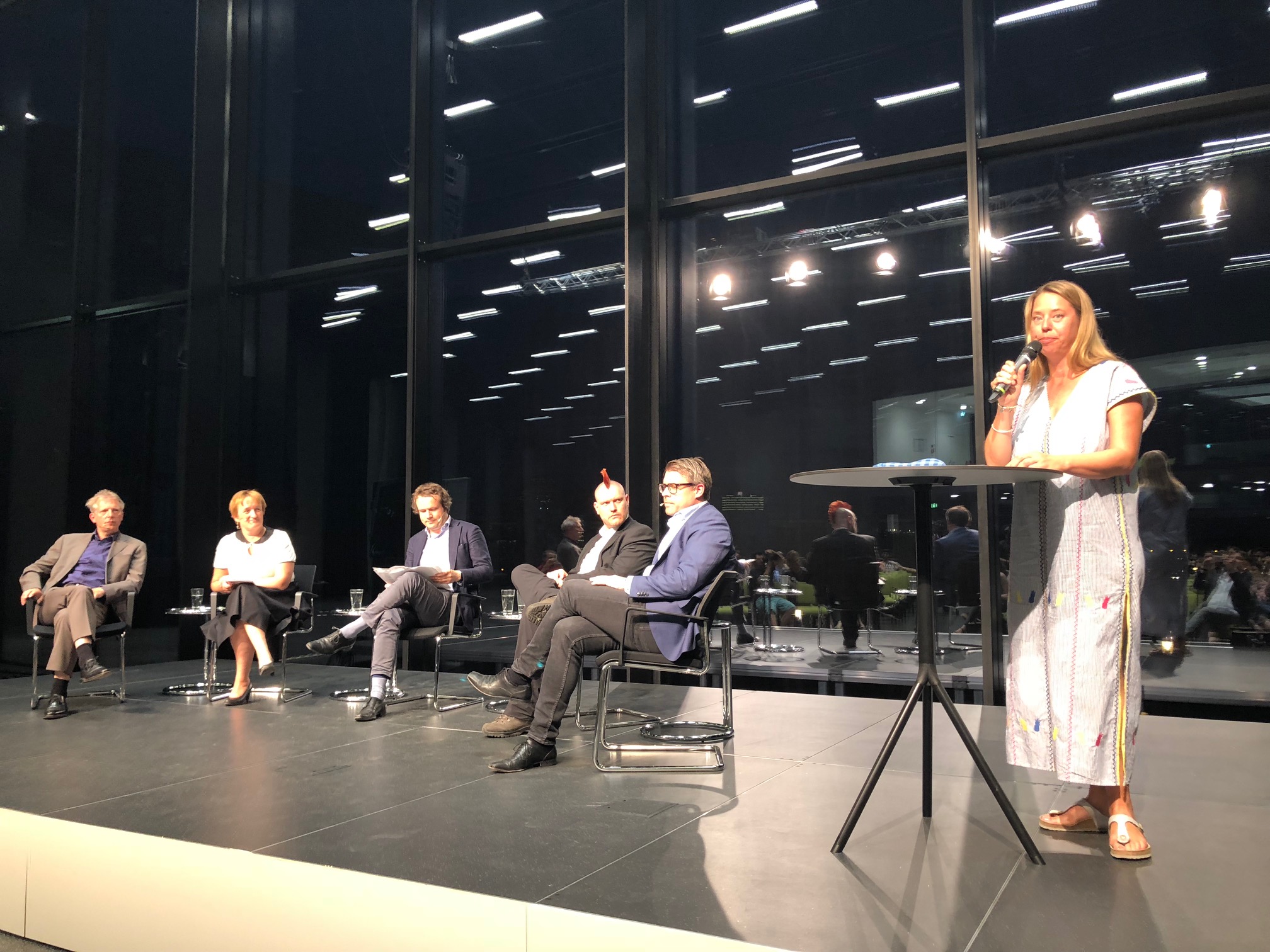RESET was on stage last month in Berlin’s brand new “Futurium” to talk about the shared future of digitisation and sustainability.
Pretty much nothing works without digital technologies anymore – they influence how we communicate, work and live together and what we know about the world. But how do we actually want to shape the future of digitisation? Where do new tools make our everyday life easier and how far do we want to let them into our private lives? How can digitisation contribute to a fairer society? And what solutions could it offer us for challenges that we’ll be facing in the future?
These and other questions were up for debate on the 31st of May 2018 in Berlin’s new Futurium building, located in the city’s governmental district. Discussing them were Prof. Dr-Ing. Ina Schieferdecker (Weizenbaum Institute for the Networked Society), Sascha Lobo (author and blogger), Kai Goerlich (Chief Futurist at SAP), Prof. Dr Christian Montag (Head of the Department of Molecular Psychology at the University of Ulm) and Martin U. Müller (from German news magazine Der Spiegel). Uta Mühleis was on stage for RESET with a talk about our favourite topic: What does innovation look like when digitisation meets sustainability?
In a globalised world where people are more likely to have a mobile phone in their pockets than access to clean drinking water, digitisation holds huge potential for just and sustainable development throughout the world. Of course, we’re also seeing developments that have little to do with sustainability: increasingly sophisticated marketing tools, for example, and the rise of online shopping – both leading to increased consumption. And many gadgets, which are supposed to help us save energy, also consume a lot of energy when they’re produced – meaning that even in the best case scenario, we’re only ever back to zero by the end.
But there are also projects and enterprises that make a meaningful contribution to a sustainable world by making smart use of digital tech – and Uta Mühleis was on the podium to present a pick of the best examples of exactly that. All of the cases presented had two things in common: they use digital tech in a smart, logical way, and they have a focus on ecological sustainability and the common good. Drones are already being used to reforest remote areas, while satellites are being used to monitoring of wildlife and keep tabs on illegal loggers. And when it comes to humanitarian aid, the NGO Field Ready is using 3D printers in crisis areas to manufacture the medical equipment that’s needed (whether it’s tweezers or prosethetics) directly on site – like after the earthquake in Haiti for example. While another team from Amsterdam has developed a high-tech device inspired by nature that can defuse landmines safely and cost-effectively.
All in all, this opening event was a huge success. The glass building in the middle of Berlin’s government district is set to become a space for discussing different ideas about how we are to shape the future – where state, science, industry and society all have a say. And the building itself is forward-looking too – low-energy and relying on photovoltaics and solar thermal energy for its power supply. We’re looking forward to seeing what else this new space of future-thinking will have to offer, and to the official opening of the entire Futurium in spring 2019.






